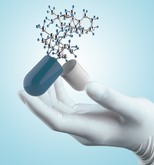Policies & Legislation
US Senators reveal plans to lower drug prices
The House Ways and Means Committee have approved Speaker Nancy Pelosi’s drug pricing bill, while Democratic nominee Pete Buttigieg has disclosed his own drug pricing plan that would impose penalties on ‘worst offender’ pharmaceutical companies.
Canada amends its drug pricing regulations
The Canadian Government has released final amendments to its Patented Medicines Regulations. The amendments, according to the Canadian Government, represent ‘the most significant reforms to the regulations since their introduction in 1987’ and are also a significant departure from the existing framework.
A call to end US drug pricing games
In a modern world dominated by personal choice, we still lack choice when it comes to health care. In the US, pharmaceutical companies play a drug pricing game that prevents low-cost medicines from being easily accessed by patients. In a commentary published in August 2019, Kathy Oubre, Chief Operations Officer of Pontchartrain Cancer Center in the US, outlined the details of drug pricing issues.
China eases generic medicine import laws
China has revised its drug administration laws to allow the import and sale of small quantities of generic drugs which are not approved in China.
Praise for Canada’s BC after it adopts biosimilar transitioning policy
The Canadian Biosimilars Forum and Green Shield Canada have publicly commended the government of the province of British Columbia (BC) for announcing that it will implement biosimilar transitioning [1]. Here, patients will transition in a controlled manner from using a reference biological drug to its biosimilar. In their announcement, the Forum believes that BC will make big savings that will allow increased access to existing therapies and faster access to new medicines.
China audits drug companies
In June and July 2019, China embarked on an audit of 77 major pharmaceutical companies, including the local arms of Sanofi, Eli Lilly & Co and Bristol-Myers Squibb Co. This action was undertaken after one of its largest listed drug manufacturers overstated its cash position by US$4.3 billion. The announcement called an index of healthcare companies traded in Shanghai and Shenzhen to fall by 1.8%.
IPRP expands and all EU Member States now included in EU-US MRA
During the June 2019 International Pharmaceutical Regulators Programme (IPRP) management committee meeting in Amsterdam, The Netherlands, it was announced that Iran’s National Regulatory Authority (NRA) and Argentina’s National Administration of Drugs, Foods and Medical Devices (ANMAT – Administración Nacional de Medicamentos, Alimentos y Tecnología Médica) have joined the IPRP. There are now 26 members of IPRP.
Bill introduced in US to cut insulin prices
Co-Chair of the Senate Diabetes Caucus, Senator Jeanne Shaheen, announced on 22 July 2019 the introduction of new legislation to combat rising insulin prices.
Bipartisan bill aims to reduce healthcare costs in the US
Senators Lamar Alexander and Patty Murray recently introduced the ‘Lower Health Care Costs Act of 2019’. The bipartisan bill includes 54 different proposals from 65 senators (36 Democrats and 29 Republicans), all aimed at lowering the cost of health care.
US FDA acts to improve transparency and predictability for new generics applications
On 18 June 2019, the US Food and Drug Administration (FDA) released a ‘Statement on a new effort to improve transparency and predictability for generic drug applicants to help increase timely access to high quality, lower cost generic drugs’. Here, the agency outlines that, to facilitate American patients’ access to lower-cost generic medicines, they are taking steps to enhance and streamline the development and approval process of high quality generic drugs.












